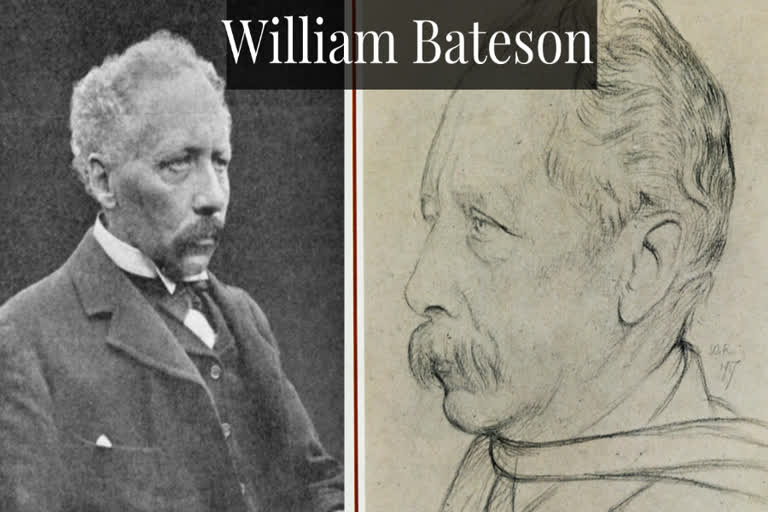Hyderabad: William Bateson was born in Whitby, United Kingdon, and married Beatrice, daughter of the late Arthur Durham, Senior Surgeon of Guy's Hospital. Some of the achievements and works of William Bateson are:-
- Bateson attended Rugby School and continued his education at St.John's College, Cambridge, where he gained a scholarship.
- He took first-class honors in the Natural Science Tripos Examinations of 1882 and 1883.
- In the latter year, he was elected to a fellowship and in 1910 was made an honorary fellow of St.John's College.
- Bateson held an M.A.degree from Cambridge University and an honorary Doctor of Science degree from Shef field University.
- As a student and later a researcher in Cambridge, Bateson was interested in species variation and heredity.
- He traveled to the Central Asian steppe and collected data on how environmental conditions relate to variation.
- In 1894, he published a book Materials for the Study of Variation based on his observations.
- In this book, he outlined the experimental approach that should be used to study inheritance. He was designing Mendelian experiments.
- Bateson recognized the importance of "Mendelian Law," especially given his own experiments.
- By 1902, Bateson had translated Mendel's works into English and was a strong supporter of the Mendelian laws of inheritance.
- Bateson left Cambridge in 1910 to accept the Directorship of the John Innes Horticultural Institute at Merton. He continued to have ties to Cambridge, collaborating with R. C. Punnett on genetic experiments and publications. Bateson and Punnett co-founded the Journal of Genetics in 1910.
He was well aware of this and said "The term controversial is conveniently used by those who are wrong to apply to the persons who correct them."
Danish botanist Wilhelm Johannsen coined the word gene to describe the Mendelian units of heredity. He also made the distinction between the outward appearance of an individual (phenotype) and its genetic traits (genotype).
Four years earlier, William Bateson, an early geneticist and a proponent of Mendel's ideas, had used the word genetics in a letter; he felt the need for a new term to describe the study of heredity and inherited variations. But the term didn't start spreading until Wilhelm Johannsen suggested that the Mendelian factors of inheritance be called genes. The proposed word traced from the Greek word genos, meaning "birth".
